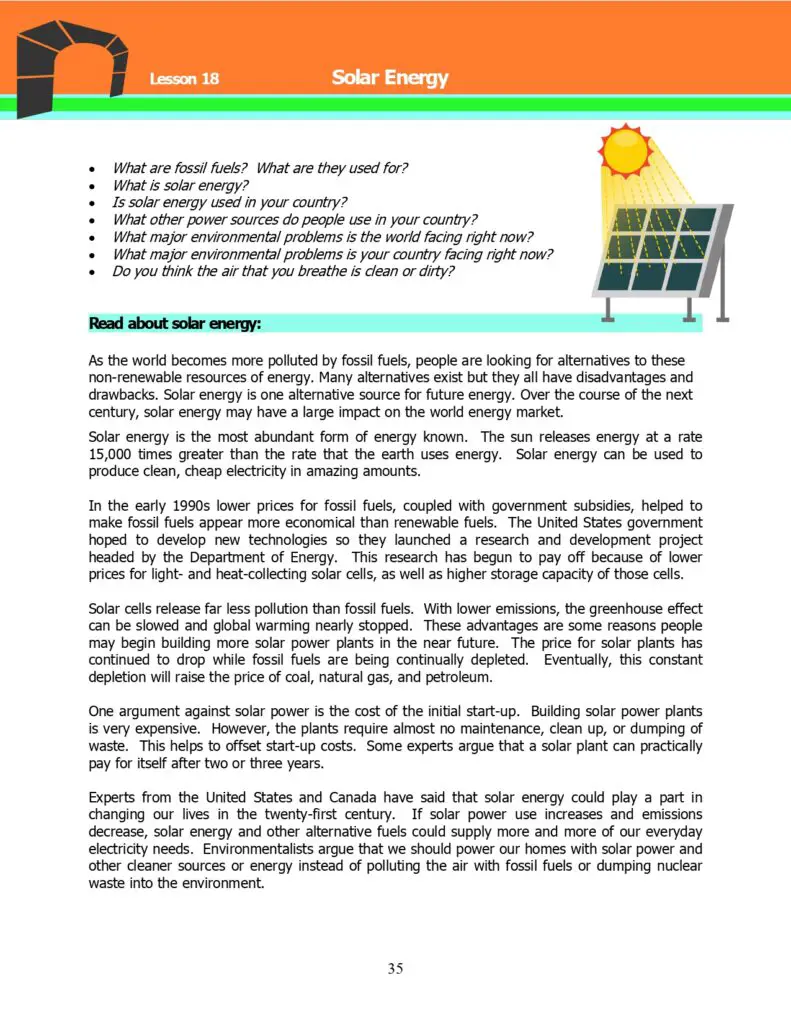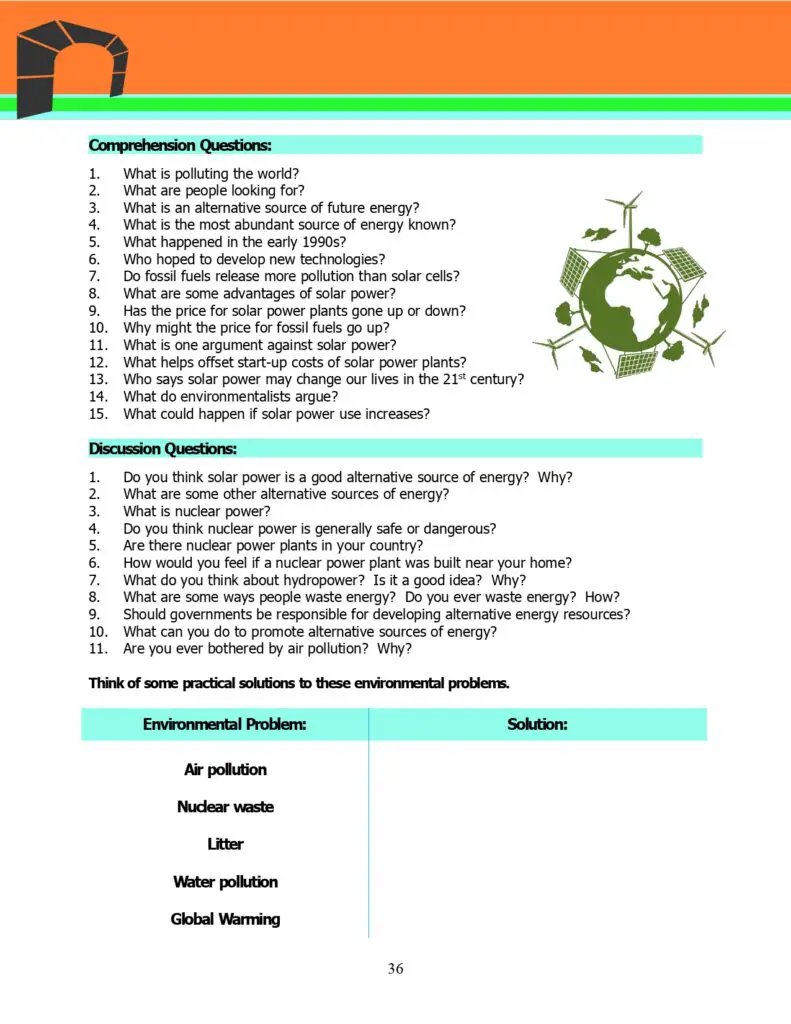This is Lesson 18, “Solar Energy,” from our collection of advanced adult ESL lessons. The lesson features an article about solar energy, followed by comprehension questions, discussion questions, and a short activity in which students come up with solutions to various environmental problems. This content-packed lesson is useful for helping more advanced English learners refine and improve their English fluency. This lesson is available for free download, and you can download many other ESL lessons for adults like this one in our book ESL Pathways: Frontiers.


ADULT ESL LESSONS: Solar Energy (Text-Only Version)
- What are fossil fuels? What are they used for?
- What is solar energy?
- Is solar energy used in your country?
- What other power sources do people use in your country?
- What major environmental problems is the world facing right now?
- What major environmental problems is your country facing right now?
- Do you think the air that you breathe is clean or dirty?
Read about solar energy:
As the world becomes more polluted by fossil fuels, people are looking for alternatives to these non-renewable resources of energy. Many alternatives exist but they all have disadvantages and drawbacks. Solar energy is one alternative source for future energy. Over the course of the next century, solar energy may have a large impact on the world energy market.
Solar energy is the most abundant form of energy known. The sun releases energy at a rate 15,000 times greater than the rate that the earth uses energy. Solar energy can be used to produce clean, cheap electricity in amazing amounts.
In the early 1990s lower prices for fossil fuels, coupled with government subsidies, helped to make fossil fuels appear more economical than renewable fuels. The United States government hoped to develop new technologies so they launched a research and development project headed by the Department of Energy. This research has begun to pay off because of lower prices for light- and heat-collecting solar cells, as well as higher storage capacity of those cells.
Solar cells release far less pollution than fossil fuels. With lower emissions, the greenhouse effect can be slowed and global warming nearly stopped. These advantages are some reasons people may begin building more solar power plants in the near future. The price for solar plants has continued to drop while fossil fuels are being continually depleted. Eventually, this constant depletion will raise the price of coal, natural gas, and petroleum.
One argument against solar power is the cost of the initial start-up. Building solar power plants is very expensive. However, the plants require almost no maintenance, clean up, or dumping of waste. This helps to offset start-up costs. Some experts argue that a solar plant can practically pay for itself after two or three years.
Experts from the United States and Canada have said that solar energy could play a part in changing our lives in the twenty-first century. If solar power use increases and emissions decrease, solar energy and other alternative fuels could supply more and more of our everyday electricity needs. Environmentalists argue that we should power our homes with solar power and other cleaner sources or energy instead of polluting the air with fossil fuels or dumping nuclear waste into the environment.
Comprehension Questions:
- What is polluting the world?
- What are people looking for?
- What is an alternative source of future energy?
- What is the most abundant source of energy known?
- What happened in the early 1990s?
- Who hoped to develop new technologies?
- Do fossil fuels release more pollution than solar cells?
- What are some advantages of solar power?
- Has the price for solar power plants gone up or down?
- Why might the price for fossil fuels go up?
- What is one argument against solar power?
- What helps offset start-up costs of solar power plants?
- Who says solar power may change our lives in the 21stcentury?
- What do environmentalists argue?
- What could happen if solar power use increases?
Discussion Questions:
- Do you think solar power is a good alternative source of energy? Why?
- What are some other alternative sources of energy?
- What is nuclear power?
- Do you think nuclear power is generally safe or dangerous?
- Are there nuclear power plants in your country?
- How would you feel if a nuclear power plant was built near your home?
- What do you think about hydropower? Is it a good idea? Why?
- What are some ways people waste energy? Do you ever waste energy? How?
- Should governments be responsible for developing alternative energy resources?
- What can you do to promote alternative sources of energy?
- Are you ever bothered by air pollution? Why?
